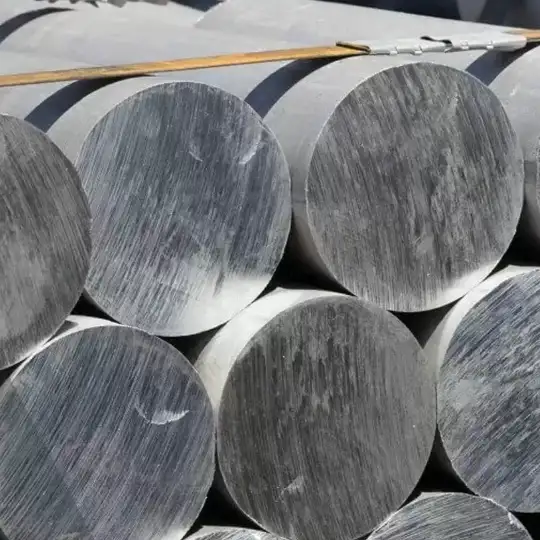Inconel 718 continues to command a premium among nickel-base alloys: typical market prices in 2025 range widely depending on form, quantity, and certification — roughly $45–$110 per kg (≈ $20–$50 per lb) for common mill products such as bars and plates, with smaller orders, specialty forms (powder for AM) or certified aerospace material often pushing costs higher. If your project budget is sensitive to material cost, expect the alloy composition (high nickel and niobium content), required mill processing and heat treatment, and traceable certifications to be the primary levers that determine final price.
What Inconel 718 is, and why it costs more than ordinary alloys
Inconel 718 (UNS N07718, also listed under W-Nr. 2.4668 and covered by AMS 5662/5663) is a precipitation-hardenable nickel-chromium-iron superalloy strengthened principally with niobium, with additions of molybdenum and titanium. Its combination of high tensile strength, creep-resistance at elevated temperatures, weldability, and corrosion resistance accounts for its heavy use in aerospace, power generation, and demanding industrial environments. These performance characteristics arise from alloying elements — especially nickel and niobium (columbium) — that are much more costly than the iron and chromium in stainless steels, which helps explain the price premium.
Current price ranges by product form
The table below summarizes typical market ranges you can expect in 2025. Prices vary by region, supplier, order size, and certification level; treat these as procurement benchmarks, not quotes.
| Product form | Typical price (USD/kg) | Typical price (USD/lb) | Notes |
|---|---|---|---|
| Mill bar / plate (bulk, mill grade) | $45 – $110 / kg | $20 – $50 / lb | Common mill stock; wide spread across suppliers & regions. |
| Small-quantity retail (cut lengths, low MOQ) | $30 – $160 / kg | $14 – $73 / lb | Higher per-unit markups for small buys; supplier listings show low end bargains from high-volume exporters. |
| Forgings / finished parts (heat-treated) | $70 – $200+ / kg | $32 – $91+ / lb | Includes forging cost, heat treatment & testing; aerospace forgings at top end. |
| Wire, fasteners | $60 – $180 / kg | $27 – $82 / lb | Specialty forming and thread processing add cost. |
| Additive-manufacturing powder (IN718 gas-atomized) | $80 – $350 / kg | $36 – $159 / lb | Powder production, particle spec and certification increase cost significantly. |
Quick note on the ranges: public market guides and supplier listings from 2025 show the spread above — differences arise from regional scrap/ni ck el pricing, supplier overheads, and certification (mill test vs. traceable aerospace MTC).
Key factors that move the price (what procurement teams must track)
-
Nickel and alloying element markets. Nickel is the largest cost driver; when nickel or niobium markets spike, Inconel prices follow with a lag. Macro indices for nickel-base mill shapes are useful for budgeting.
-
Form and processing complexity. Bars and plates are cheaper per kg than forgings and heat-treated finished parts because of added machining and heat treatment. Powder production and screening add the biggest processing premium.
-
Melting & metallurgy route. Vacuum induction melting (VIM), vacuum arc remelting (VAR), or double-melting steps required for aerospace specs increase cost versus commercial melt routes. AMS/ASME limits on inclusion content and heat history raise price.
-
Certification and traceability. AS9100/aerospace-grade test reports (MTRs), PMI (positive material identification), aging certificates, and chemical analysis raise supplier costs and your price.
-
Volume, lead time and logistics. MOQ, lot size, and freight (especially for heavy bar/plate) significantly affect landed cost; small orders carry higher per-unit prices.
Practical procurement tactics to reduce landed cost
-
Buy to standard rather than to bespoke: letting the mill supply standard sizes reduces remelting/forging costs.
-
Aggregate demand: combine requirements across projects, or coordinate with other buyers to meet supplier MOQs.
-
Specify appropriate certification: ask whether a full aerospace MTR is necessary — often an industrial MTC suffices and saves money.
-
Request itemized quotes: separate raw-material surcharge, processing, testing and freight so you can negotiate each component.
-
Time purchases with market dips: monitor nickel and alloy surcharges — buying when indices soften can save 5–15% depending on timing.

Global Inconel 718 Price Comparison Table (2025)
| Region / Format | Price Range (USD per kg) | Notes |
|---|---|---|
| Global Average | $110–$150 (plate, rod, billet) | Typical per-kg cost for bulk formats |
| Bar / Rod (Ø12–150 mm) | $110–$130 | Common form factor |
| Plate (6–50 mm thick) | $115–$140 | Flat stock pricing |
| Tube / Pipe (¼"–4" OD) | $120–$145 | Tube/pipe form pricing |
| Sheet / Strip (0.5–3 mm) | $125–$150 | Thin stock pricing |
| Wire (Ø 0.5–3 mm) | $130–$155 | Wire-specific form pricing |
| Region – Global Averages | USD per kg | Notes on regional variation |
| USA | $50–$65 | Higher due to domestic certification, QA and AMS standards |
| Europe | $48–$61 | Elevated labor, energy costs, aligned with EU standards |
| India | $40–$45 | Lower labor cost, lower certification overhead |
| China | $23–$28 | Best price for large-scale sheet/bar; may compromise traceability |
| Japan | ~$51 | High standards, strict regulations |
| Other Forms & Applications | Price (USD per kg) | Use Cases / Observations |
| Forged (ASTM B637) | $44–$48 | Forging processes like impression/ seamless rolling |
| Powder | $70–$250 | Expensive form used in high-end components like engine parts, manifolds |
| Wire | $30–$45 | For turbine blades, seals, pharmaceutical & downhole components |
Form-specific notes (buyers & engineers)
Bars & plates
-
Most cost-effective for large structural parts. Prices are impacted by billet availability and cross-section size. Mills publish stock lists and lead times; long lead times can increase price.
Forgings / finished components
-
Include forging, solution anneal, aging, and NDT costs. Aerospace parts may also require special heat treatment cycles and strict dimensional control.
Tubing & pipe
-
Seamless tube is more expensive than welded tube; small diameters and thin walls can be costly due to specialized drawing/annealing processes.
Fasteners & small parts
-
Cold-forming and thread processing add cost. For high volume, specify commodity classes (UNS N07718 fastener standards) to lower per-piece cost.
Additive manufacturing powder
-
Gas-atomized IN718 powder for AM is costly due to particle control and certification. Powder supply constraints and demand from aerospace/medical can inflate prices. If AM is essential, lock supply with lead times and quality agreements.
Certification and testing premiums (how much extra you should expect)
-
Basic mill test certificate (MTC): often included in price for standard product.
-
Traceable aerospace MTR / AS9100: add a premium — commonly 10–30% depending on the vendor and paperwork burden.
-
Special metallurgy (double-melt, VIM/VAR): adds a further premium that can double the base material cost for small quantities.
How market indices and raw-material surcharges matter
Many specialty metal producers publish monthly alloy surcharge adjustments that are applied to base prices to reflect movements in nickel, cobalt, and other element costs. Monitoring these surcharges (and indices published by mills or industry analysts) helps predict how quoted prices will move between order placement and shipment. For budgeting, add a contingency equal to recent monthly volatility if lead time exceeds 30 days.
Quick buyer checklist (before you request quotes)
-
Exact UNS / specification required (e.g., UNS N07718, AMS 5662).
-
Product form, dimensions, and acceptable mill processes (VIM/VAR required?).
-
Required certifications and tests (MTR, PMI, NDT).
-
Quantity, delivery window, and whether partial deliveries are allowed.
-
Packing and special handling (heat-sensitive parts, cryogenic service).
-
Import/export constraints (duties, embargoes, dual-use controls).
Having this list will prevent over-specification and reduce unnecessary premiums.
Representative supplier pricing snapshots
-
Mill and industry price guides report Inconel products commonly trading in the ranges summarized above; consult updated guides when preparing specifications.
-
Online marketplaces (Alibaba, Made-in-China) sometimes list aggressive per-kg prices for bulk orders (e.g., $16–$36/kg) but verify metallurgical route and certificates. Lower prices often reflect commodity grade or higher MOQs.
-
Specialty metal producers publish surcharge reports that show element-by-element adjustments (helpful when negotiating long-lead contracts).
FAQs
-
What is a realistic price per pound for Inconel 718 in 2025?
Typical quoted ranges for mill products are about $20–$50 per lb, with variances based on form and certification. -
Why do I see wildly different prices between suppliers?
Differences stem from order size, melt route (VIM/VAR), certification, and whether the supplier includes machining, heat treatment or testing in the price. -
Is Inconel 718 powder (for 3D printing) much more expensive?
Yes — powder has higher production costs. Expect a substantial premium (often 2–5× per-kg versus bulk bar). -
How much extra does aerospace certification add?
Aerospace traceability and MTRs commonly add 10–30% or more, depending on the required paperwork and testing. -
Can I substitute a cheaper alloy?
Only if your application tolerates lower strength, creep resistance, or different corrosion behavior. Substitutions must be validated by engineering tests and may not be acceptable for certified components. -
How do alloy surcharges work?
Mills or suppliers calculate surcharges based on market prices for nickel and other elements; these are applied monthly or per contract to adjust the base price. -
Do small orders always cost more per unit?
Yes — small MOQs and cutting/processing fees raise per-kg costs; aggregating demand lowers unit price. -
Where can I get price trend data?
Use industry price trackers, procurement portals, and national indices for nickel-based mill shapes (e.g., Producer Price Index datasets). -
What documentation should I require from suppliers?
Request MTRs with chemical and mechanical test results, heat lot numbers, and details on melting route and heat treatment. For critical parts require full traceability. -
Is lead time a cost factor?
Yes — tight lead times often increase price because mills prioritize faster production runs and incur overtime or expedite charges.
Practical examples and a short scenario
Imagine you need 100 kg of IN718 round bar for industrial valves (industrial MTC suffices). A commodity supplier might quote $60/kg delivered if you accept standard mill stock and 8–10 week lead time. For an aerospace-grade order (same weight but with VIM/VAR, full MTR and AS9100 traceability), expect quotes well north of $100/kg because of specialized melts and paperwork. These order-level differences illustrate why early specification and clarity on certification are essential to control cost.
Closing recommendations
-
Always specify the minimum required metallurgical route and testing — over-specification is a common and expensive pitfall.
-
Monitor monthly alloy surcharge reports and nickel indices before locking large purchases.
-
For additive manufacturing, pre-qualify powder vendors and require PSD (particle size distribution) and certification.
-
Negotiate quotes by separating raw material, processing, certification, and freight line items — this provides negotiation leverage.

